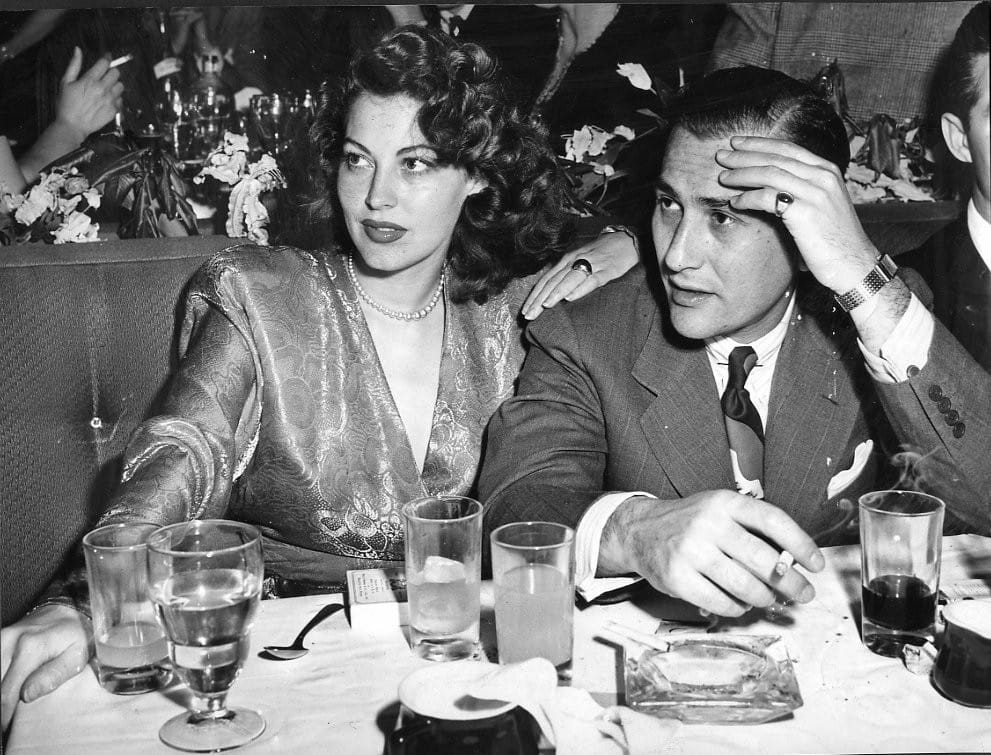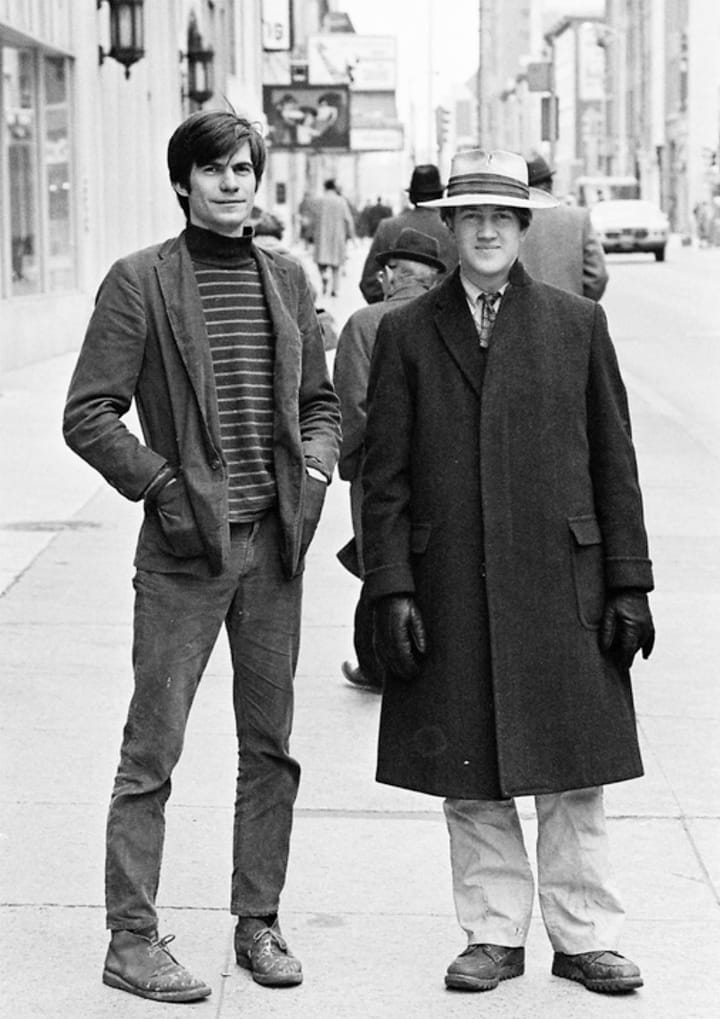"They Tried to Sell Me Like A Prize Hog"

"I've never had a good man," Ava Gardner told Rex Reed in 1967
Look at her, Ava Gardner. If you’ve seen this picture even once, it likely hangs on in your memory. It’s from 1945, the year of her marriage to Artie Shaw, who is seen here under her proprietary hand.
The set decoration and props are Oscar-level. One's eye somehow lands on Shaw’s cigarette, but you’d need a Botticelli to do their postures justice. He’s got the bling, the pricey watch band, the cuff links, the pinkie ring, the gaudy tie snugged into a tab collar. His left hand caresses his brow—some sort of exhausted existentialist mood? (Shaw was an omnivorous reader. Camus wrote “The Stranger,” in which the narrator kills an unnamed Arab in Algiers, in `42.) There are empty glasses, several of them.
World War II is barely over. (Shaw had toured the Pacific with his Navy Rangers swing band, playing to crowds of thousands on decks and forward bases.)
Gardner--who will be depicted ordering a tall glass full of straight tequila in an article we’ll get to below—is 23 years old.
Behold the Grabtown, N.C., sharecropper’s daughter. The chin, the lips, the notorious lioness body sheathed in silk. Those eyes. Their expression that says you will not sucker me, but I can flatten you with a smile. Her proprietary left hand, the reserve in their half-glares, shows the duo is fenced off– from an accosting gossip columnist, perhaps?
These musings rise from my recent reading of an already much-praised compilation of exemplary profile journalism from the Sixties and Seventies, as edited by Alex Belth. Belth is currently the custodian of the Esquire Classics site and a growingly appreciated historian, curator and re-publisher of great journalism on his Stacks Reader site, and appearing under the imprint of The Sager Group: https://thesagergroup.net/books/what-makes-sammy-jr-run
This writer has a small part (but no financial stake) in the compilation, adding a brief intro to intriguing pieces by Sally Quinn and Red Reed. The Reed piece spurred thoughts of Gardner's legendary stature; she would come to loathe her years as a contract player for Metro--"They sold me like a prize go"--and at age 44, a failed series of liaisons with the likes of Sinatra: "I never had a good man." (She coyly no-comments Reed when asked directly about Frank, though on another occasion she'd allow he "was good in the feathers.")
It's clear Reed is enjoying the dish—it was a time when writer and subject might enjoy a mutual trust. In profiling Nureyev , Quinn quite enjoys the rascally obfuscations of the manchild who was the world's leading ballet dancer for a time. The Reed and Quinn profiles show a kinder, gentler time as subject and profiler attain a laughing rapport. (Though we also know the truth of Joan Didion's warning that “Writers are always selling somebody out,” was just around the corner. And will surely be reflected in Belth's future compilations of succeeding decades.)
Along with the general graciousness of the earlier era, the book offers a cast including certain celebs who are decreasingly known to the generations who followed. But that's part of their value, and the observations and insights pay off time and again--e.g, Jerry Lewis in the hands of O’Connell Driscoll, Helen Gurley Brown deconstructed like a Jenga stack by Nora Ephron, or Robert Mitchum assiduously evoked by Brad Darrach as “a face out of an Eighh Avenue gym.”
Manhattan, like the Atlantic Ocean, was something then. In a piece on Mary McCarthy that unveils this collection's literary underbelly, Brock Brower writes that you might "find husbands or pieces thereof crammed into her novels like dismembered limbs crammed into a Grand Central Terminal baggage locker."
We see Doon Arbus cozy up as James Brown tells her that he is "the alonest man" she'll ever meet, slugger Reggie Jackson telling Robert Ward he'll be "the straw that stirs the drink" for the Yankees, Mark Jacobson watching blaxploitation star Pam Grier shoo off two "smalfry superflies" on the street. If some of these pieces make us wonder at the nature of celebrity and its evanesence (writer Grace Paley warned us about "Time which makes a monkey of us all"), those questions are a key part of what the collection intends to offer its readers. Reggie Jackson had considerable right to brag that "I'll open the road and let others come thundering down the path," and for the writers who continue to make their way thanks to the inspiration found in Belth's collection, that is just what we can hope, at least, to do.





Comments ()